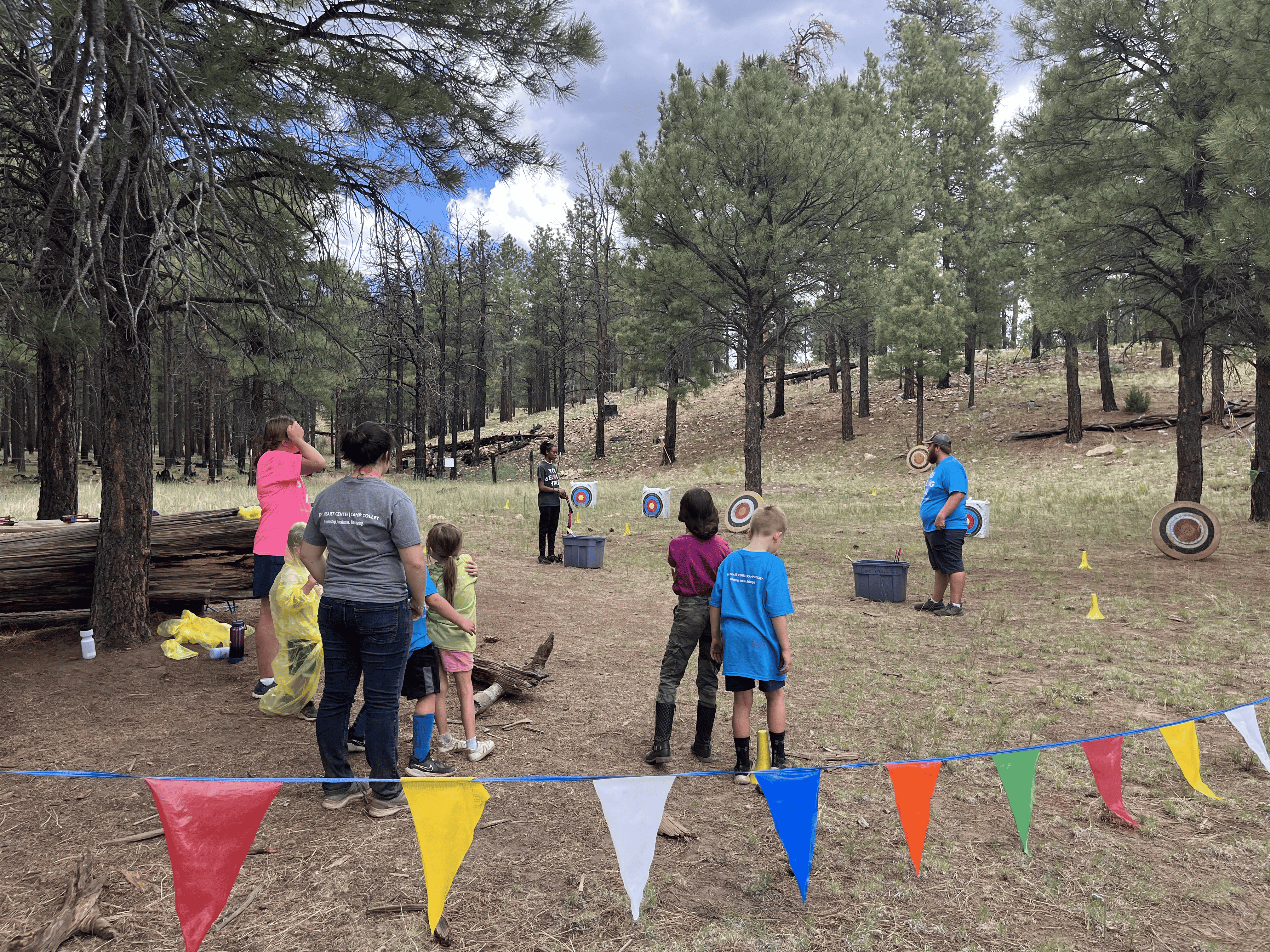
A Phoenix Program for Kids to Escape the City's Summer Heat and Get Outdoors
A summer program in Phoenix that helps kids escape the city's scorching heat and enjoy the outdoors has returned for its second year after a recent hiatus. This initiative, known as Camp Colley, is part of the city’s efforts to provide children with meaningful outdoor experiences. Over the past two decades, the camp has faced financial challenges but has continually adapted its programming to meet the needs of the community.
Camp Colley is located in a remote area north of Payson, nestled within dense forests. The camp was founded by James A. Colley, a former director of the Phoenix Parks and Recreation Department. His vision was to create an accessible space where children from underserved communities could benefit from outdoor recreation. According to the American Academy for Park and Recreation Administration, Colley dedicated his career to expanding programs that catered to children of all backgrounds.
In 2023, the H.E.A.R.T. Center, a nonprofit organization focused on providing equestrian recreational therapy to disabled and neurodivergent youth, took over operations of Camp Colley. The center brought its expertise in creating inclusive learning environments and refined the program's commitment to serving underrepresented populations.
“We know wholeheartedly what the mission of this place is, what it stands for, why it exists,” said Chelsea Harden, founder and executive director of the H.E.A.R.T. Center. “It is really important that we make sure that camp is cost-effective and that cost is not a barrier for people to attend.”
The partnership between Phoenix and the H.E.A.R.T. Center reflects the camp’s long history of collaborating with local organizations to ensure its continued operation. Claire Miller, a park supervisor for Phoenix, emphasized the importance of experiential learning opportunities like Camp Colley.
“You can bring a lot of information and stuff to the kids down in the community centers, but there's nothing like having this kind of an experiential opportunity to really be in the pines,” said Miller.
Who Can Attend Camp Colley?
Camp Colley is open to children aged 7 to 15 who are residents of Phoenix or have a parent with a Phoenix Parks and Recreation account, as well as students of the H.E.A.R.T. Center. The camp runs from mid-June to late July, with fees ranging from $175 for a three-day session to $275 for a five-day session. Leadership roles are also available for teens aged 16 to 17, with fees from $100 for a three-day camp to $150 for a five-day camp. Young adults with disabilities aged 18 to 22 can participate in leadership roles at no cost.
Fees include transportation from Phoenix to the campgrounds, meals, and lodging. Additionally, Phoenix offers scholarships so that families can attend at no cost.
Despite facing financial crises and the impact of the global pandemic, Camp Colley has remained a vital resource for the community. In 2001, Phoenix purchased the land for the camp for $1.38 million and opened the campgrounds the following year. Throughout the 2000s, the camp expanded its facilities to include stables for an equestrian program, solar panels for off-grid power, and a bathhouse for hot showers.
A History of Challenges and Adaptations
In 2008, during the Great Recession, the Parks and Recreation Department faced staff reductions and budget cuts that threatened the camp’s existence. At that time, the Camp Colley Foundation stepped in to help raise funds for lower-income youth. However, the camp faced further challenges, including a Coconino County permit noncompliance issue in 2012, which led to its closure for the summer. In 2017, the Arizona Parks and Recreation Fellowship ended its relationship with the camp, resulting in another lost year.
Tonto Creek Camp took over operations for two years before handing it back to the Camp Colley Foundation in 2020. The program was closed again in 2020 due to the pandemic and in 2021 because of wildfires. For the next two years, Camp Colley had no operator until the H.E.A.R.T. Center decided to step in and revitalize the program.
Expanding Upon Camp Colley’s Framework
Harden, who previously worked as a counselor at Camp Colley, recognized the potential for the camp to focus more on therapeutic activities. She became a certified recreational therapist and established the H.E.A.R.T. Center in 2014 to provide therapeutic horsemanship to students with developmental disabilities.
“By having recreation therapists on staff, we’re able to adapt the activity to support the physical-cognitive needs of all the students that attend camp,” said Harden.
Campers spend three to five days at Camp Colley, engaging in activities such as horse care, crawdad fishing, and hiking. These activities aim to foster social and emotional learning, with group games designed to teach communication and teamwork skills. Other activities, like archery, help improve hand-eye coordination.
A Popular Equestrian Program
One of the most popular aspects of the camp is the equestrian instruction. Alex Halping, a horse riding instructor for the H.E.A.R.T. Center, noted that horses are particularly effective in helping neurodivergent children manage their emotions.
“The biggest thing with these animals is that they're incredible at mirroring and regulating emotions,” said Halping. “The horses get them, and they get the horses in a way that I can't explain.”
Neurodivergent campers benefit from mixed-ability environments, where they learn alongside neurotypical peers. This approach allows for smaller group sizes and specialized support, making it easier for children who might struggle in larger settings to integrate and build friendships.
Leadership Opportunities for Teens and Young Adults
As campers grow older, they can return to Camp Colley in leadership roles. These positions offer work experience and help build resumes while allowing participants to develop skills in counseling and other areas. Young adults with disabilities can also return to the camp to gain essential work skills in a safe environment.
Employing young adults has helped address staffing challenges that the camp has faced in the past. “It is so great to see it up and running,” said Miller, “and have kids experience the benefits of being out in nature.”